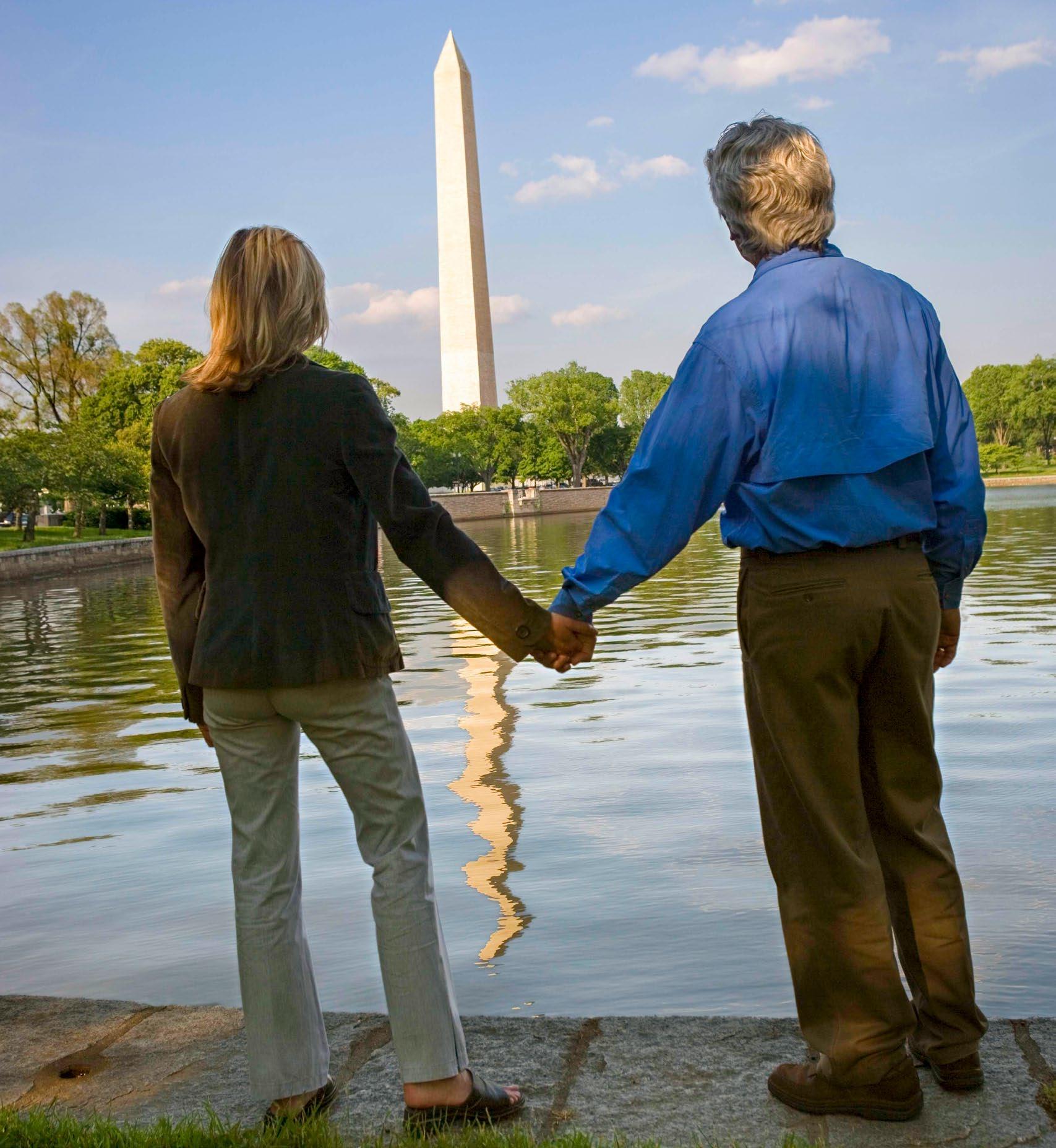One Less Tear
Targeted For Her Beliefs, An Art Therapist Pours Her Life Into Helping Hurting Youth

Marshéle Carter
Maureen Collins


Brad Hopkins

Elyssa Koren
Charles Snow Kristen Waggoner Ryan Womack


Targeted For Her Beliefs, An Art Therapist Pours Her Life Into Helping Hurting Youth

Marshéle Carter
Maureen Collins


Brad Hopkins

Elyssa Koren
Charles Snow Kristen Waggoner Ryan Womack

You’ve probably had the experience of hitting on a passage in your daily devotionals that takes special hold on your heart. For me, my move into leadership of ADF these last few months has been immersed in thoughts of a story in Acts:
A man, crippled from birth, is carried to the temple gate every day to beg for money. He reaches out to Peter and John, who heal him in the name of Jesus. The healing is so jaw-dropping that Peter, John, and the beggar are swarmed as they enter the temple. Peter delivers a sermon, explaining that the miracle has been done in the name and power of Jesus, whom this crowd delivered up for crucifixion … and that His sacrifice was for them.
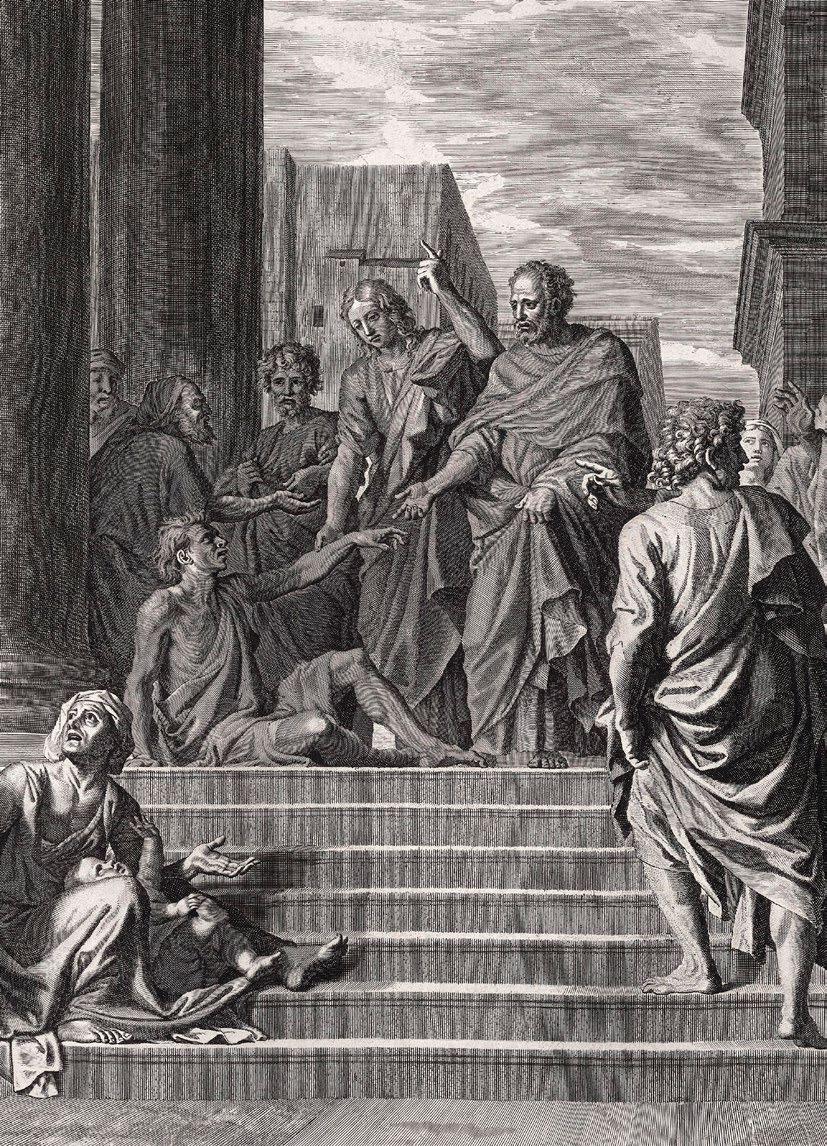
But those in power choose to feel offended rather than embrace God’s salvation. They seize Peter and John, throw them in jail, and command them not to speak about Jesus.
“Which is right in God’s eyes: to listen to you, or to him?” the apostles ask in Acts 4. “You be the judges! As for us, we cannot help speaking about what we have seen and heard.”
We are living in an Acts 4 moment.
Our society has turned away from God. Basic Christian beliefs are being blacklisted, silenced, and criminalized. But God calls His people to stay in the fight. Inspired by the apostles, we will stand on God’s truth and in God’s power.
Trusting in the Lord and relying on the Holy Spirit, we will walk boldly into the wind.
As we face growing storms of opposition, we are asking God for His purpose, His plan. We are trusting God for provision when we file a first-of-its-kind challenge to chemical abortion drugs against the FDA (see story, p. 5). We are relying on Him as we stand for our U.K. friends who face arrest for the simple “crime” of praying silently (see story, p. 21).
We will work diligently in the Lord and expect astonishing results.
As we identify our legal objectives for this season, we commit them to the Lord, asking Him for astonishing results, just as the apostles did in Acts 4. We’ve already seen some of this recently. Many thought that Roe v. Wade would never be overturned. This win was too big for anyone but God, but He accomplished it — and saw fit to use us in the process.
Like the disciples, we are faced with the choice of bowing to the whims of the world or speaking boldly of the truth we have seen and heard. ADF is honored to stand with those who choose to live the truth of Christ … knowing that, when we rely on the Lord, He does amazing things.
We will work diligently in the Lord and expect astonishing results.
Kristen Waggoner


A Minnesota jury has ruled in favor of a pharmacist who declined to fill a woman’s prescription for emergency contraceptive pills in 2019 on moral grounds.



The plaintiff claimed that pharmacist George Badeaux’s simple refusal to provide the “morning after” pill was discrimination based on sex. But the pharmacist’s decision was in fact based on his conviction that the drug can end a newly formed human life. The jury ruled that Badeaux did not violate state human rights law when he declined to provide the pill because of his religious beliefs.
“We are incredibly happy with the jury’s decision,” says Charles Shreffler, an ADF Allied Attorney who defended Badeaux in the case. “Medical professionals should be free to practice their professions in line with their beliefs.”
Shreffler’s defense was supported by ADF’s Grants and Funding program, which provides financial resources for Allied Attorneys. More than 4,600 attorneys are in the ADF attorney network.


In February, a federal court heard the case of New York City workers who were subjected to the city’s discriminatory vaccine mandate. The mandate forced workers to receive the COVID-19 vaccine to keep their jobs, even if doing so violated their sincerely held religious beliefs.
The city provided exceptions for athletes and entertainers, while public employees — firefighters, teachers, sanitation workers, and more — were forced to comply. ADF is representing many of these hardworking New Yorkers in a lawsuit challenging the unconstitutional vaccine policy.
The city discontinued the mandate two days before oral arguments were set to take place. But the policy’s harmful effects continue to impact city workers, many of whom lost their livelihoods and even their homes due to the mandate.
Arizona Christian University filed suit against a Phoenix area school district for cutting ties with the university because of its religious beliefs.

For the past 11 years, the university and Washington Elementary School District had a partnership that allowed students in the university’s elementary education program to student-teach within the district’s schools. In February, the district ended the partnership because of ACU’s religious beliefs on biblical marriage and sexuality.
School district officials showed hostility to those beliefs, the lawsuit notes, questioning how an individual could “be committed to Jesus Christ” and yet respect LGBTQ students. But the school district had never cited any complaints or evidence of any ACU student teacher violating any school district policy during the years the district partnered with the university.
At a time when there is a critical shortage of qualified, caring teachers, Washington Elementary School District officials are choosing their own political ideologies over the needs of elementary children.
Ryan Tucker, Director, ADF Center for Christian Ministries
Mississippi student Lydia Booth has prevailed in her family’s lawsuit against the Simpson County School District.
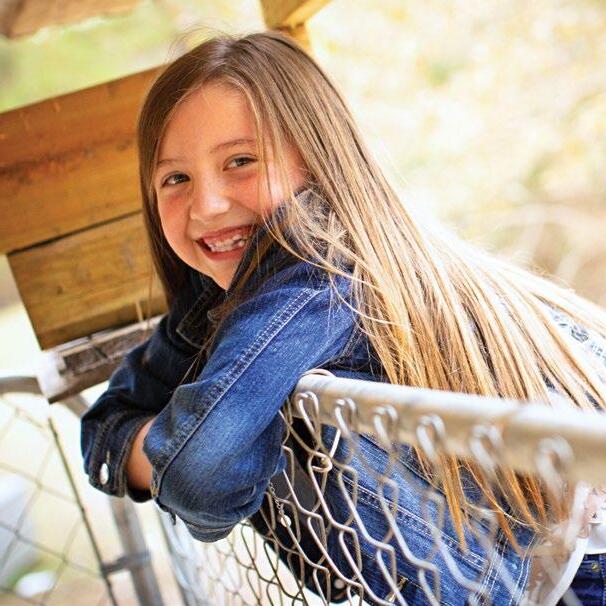
In October 2020, Lydia’s school principal asked her to remove and replace her face mask bearing the message “Jesus Loves Me.” A third grader at the time, Lydia had previously worn the mask to school without incident. Two days later, administrators announced a districtwide policy that prohibited religious messages on masks. ADF filed a federal lawsuit on behalf of Lydia and her parents in November 2020.
The Mississippi public school has now agreed to respect students’ freedom of expression, regardless of religious viewpoint. Under a settlement agreement, the district will pay $45,000 and allow Lydia to wear her “Jesus Loves Me” mask if she wishes.
The European Court of Human Rights (ECHR) has condemned the government of Bulgaria for violating the right to religious freedom of evangelical Christians in the country.
In 2008, government officials in the city of Burgas launched a campaign to warn children and families away from Protestant churches, claiming that evangelicals were “carrying out a massive campaign of agitation,” “tricking new members,” and “disuniting the Bulgarian nation.”
Pastors Radoslav Kiryakov and Zhivko Tonchev went to court to challenge the accusations, but the case was rejected. With the support of ADF International and allied lawyer Viktor Kostov, the pastors appealed to the ECHR.

Referring to the “pejorative and hostile expressions” used by authorities to discredit the church, the court ruled that the government had “disproportionately infringed” on the religious freedom of the pastors and their churches.
A Mexican Congressman has been censored after expressing his views about transgender ideology.
In Mexico, gender parity laws require 50/50 representation of men and women in Congress. In the 2021 elections, two congressional seats reserved for women were given to men who identify as women. Congressman Gabriel Quadri made statements on Twitter about the situation, noting “there is no parity between men and women [because] we have 252 men and 248 women, thanks to trans ideology.”


After a male congressional representative who identifies as a woman filed a complaint against him, Mexico’s highest electoral court tried and convicted Quadri. He was ordered to delete his tweets, issue a public apology, and register as a “gender-based political violator” — which could have severe repercussions on his political career.
ADF International is bringing his case to the InterAmerican Commission on Human Rights.
In standing up for my right to free speech, I am fighting for the free speech rights of my constituents, and those of every Mexican.
Gabriel QuadriBulgarian Pastors Radoslav Kiryakov and Zhivko Tonchev (center) with Robert Clarke, ADF International director of advocacy (left); and allied lawyer Viktor Kostov. Lydia Booth Congressman Gabriel Quadri
 By Charles Snow
By Charles Snow
Before calling Uber for a ride home, she took the first drug at a Planned Parenthood in Indiana.
It was supposed to be easy. There weren’t supposed to be any problems. At least that’s what she was led to believe.
But during her Uber ride, she began to bleed severely. Instead of taking the woman home, her driver wisely took her to the emergency room.
The woman was pregnant. And the pill she had taken was the first of two drugs to facilitate an abortion. The emergency room doctor who treated her told her not to take the second drug. If she did, her doctor warned, she could bleed out and die.
Today, those two drugs — mifepristone and misoprostol — are not only doled out at Planned Parenthood. Thanks to a rule change by the Biden administration’s Food & Drug Administration (FDA), retail pharmacies like CVS and Walgreens can now dispense the dangerous drugs.
Abortion advocates claim that the chemical abortion drugs are “safer than Tylenol.” But the evidence — and the history behind the drugs — say otherwise.
That’s why Alliance Defending Freedom filed a firstof-its-kind lawsuit challenging the FDA’s reckless and unlawful approval of chemical abortion drugs.
Working on this case was the very first assignment I received when I came to ADF,” says Senior Counsel Erik Baptist. “I was shocked to find out about the shady approval process for these drugs in the 1990s.”
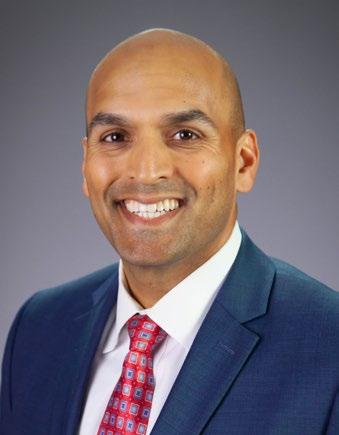
On President Bill Clinton’s second full day in office, in 1993, he directed his cabinet to legalize mifepristone
in the United States. That drug is used together with a second drug, misoprostol, to complete a chemical abortion.
According to an official with the French pharmaceutical company that first developed and tested mifepristone, Clinton wrote to its German parent company, Hoechst AG, asking the company to file a new drug application with the FDA. Hoechst refused to do so.
Clinton and his agency officials then pressured the French manufacturer of mifepristone and its parent company to donate for free the U.S. patent rights of the drugs to the Population Council, an organization dedicated to fighting “world overpopulation.”
The Population
Council filed a new drug application in 1996, then worked closely with the Clinton administration’s FDA through the review process.
Exploiting its fast-track approval authority, the FDA approved the two-drug regimen by classifying pregnancy as an “illness” and arguing that the drugs provide a “meaningful therapeutic benefit.”
In its approval, the agency ignored the potential impacts of the hormone-blocking regimen on the developing bodies of adolescent girls. And it disregarded substantial evidence that chemical abortion drugs cause more complications than even surgical abortions.
Yet the drugs received the FDA’s approval on September 28, 2000 — a little over a month before the 2000 presidential election. And chemical abortion became legal in the U.S.
In 2002, ADF clients submitted a citizen petition to challenge the FDA’s approval of the drug. After 14 years, the FDA finally denied the petition in 2016. On the very same day, the FDA completely changed the chemical abortion drug regimen, extending the gestational age for chemical abortion from seven weeks to 10 weeks. It also:
Reduced the number of in-person doctor visits from three to one.
• No longer required that a doctor prescribe and administer the drugs.
• Eliminated the requirement for prescribers to report any complications, unless they resulted in the woman’s death.
In April 2021, the FDA eliminated another crucial safeguard by allowing abortionists to dispense the chemical abortion drugs by mail — an action that a longstanding federal criminal law prohibits. At the end of that year, the FDA announced it would permanently allow the drugs to be dispensed by mail.
This decision puts women and girls at additional risk from chemical abortion drugs, since mail-order, at-home abortions skip necessary medical examinations to ensure that women don’t have conditions that could lead to fatal outcomes.
“Science was the FDA’s first victim,” Baptist says. “The clinical investigations the FDA cited to approve chemical abortion drugs had commonsense protections, like ultrasounds. But when the FDA ultimately approved these drugs, the agency required none of these protections for this dangerous regimen. And ever since then, the FDA has chopped away nearly every single safety requirement.”
The FDA never studied the safety of the drugs under the labeled conditions of use. And, according to Baptist, it’s women and children who are harmed when these drugs are approved and encouraged.

“Studies have shown that one in five women who undergo a chemical abortion will suffer a complication and seek emergency medical attention,” he says. “That’s no small number. But the abortion industry has used the wide availability of chemical abortion to prey on women and girls facing unexpected pregnancies.
“Through its baseless approval, the FDA has also ignored the congressional mandate to study the potential impacts of this hormone-blocking drug regimen on the developing bodies of adolescent girls,” Baptist continues. “Because of that, we don’t know the long-term impacts of the drugs on teenage girls. But the FDA was required to know.”
The FDA’s approval of chemical abortion drugs has always stood on shaky legal and moral ground.
Erik Baptist
We don’t know the long-term impacts of the drugs on teenage girls. But the FDA was required to know.
Erik Baptist
For over 22 years, the FDA has shown recklessness regarding chemical abortion drugs. The agency:
Never used the proper legal authority to approve the drugs.
Research has shown that mifepristone is linked with at least 20 deaths. It’s also tied to more than 2,600 adverse events — a number that is likely much lower than the actual count, considering the relaxed reporting requirements for non-fatal complications.
the requirement that an abortion provider even meet with a pregnant woman at all.” Without that in-person visit and an ultrasound, an ectopic pregnancy is undiagnosed, leaving the woman at risk for dangerous complications.

Never studied drug safety under the labeled conditions of use.
One study found that more than 35% of women who had a chemical abortion visited an emergency room within 30 days after taking these drugs. Serious complications reported to the FDA in connection to the drugs include ruptured ectopic pregnancies resulting in death, sepsis resulting in death, and significant blood loss that has required blood transfusions.
Never researched potential side effects for teen girls.
Never acknowledged the high complication rate.
Never required a prior ultrasound, a key safeguard against complications.
In the first lawsuit of its kind, ADF is challenging the FDA’s reckless approval of these drugs.
In the aftermath of the overturn of Roe v. Wade , abortion advocates have highlighted again and again ectopic pregnancies and their dangers to women — a scare tactic suggesting that pro-life laws do not permit mothers experiencing an ectopic pregnancy (a pregnancy that is not viable because it attaches outside the womb) to get the care they need. Yet mifepristone does not treat ectopic pregnancies.
“Chemical abortion drugs can be dangerous for these expectant mothers, because the drugs mask the symptoms of a life-threatening ruptured ectopic pregnancy,” says ADF Senior Counsel Erin Hawley. The risk, she says, could be prevented with an ultrasound, which is necessary to diagnose an ectopic pregnancy.
“And yet the FDA has never required an ultrasound to screen for ectopic pregnancies. Instead, the agency has permanently removed
In its lawsuit, ADF represents four medical associations that have been challenging the FDA over its reckless approval of chemical abortion drugs for two decades, along with four doctors who have treated and will continue to treat women harmed by chemical abortion.
In March, Baptist and Hawley argued before a federal judge that the FDA never had the authority to approve chemical abortion drugs and remove important safeguards.
“The FDA’s approval of chemical abortion drugs has always stood on shaky legal and moral ground,” says Baptist. Now, he says, it’s time for the FDA to be held accountable.
“After years of evading responsibility, it’s time for the government to do what it’s legally required to do,” Baptist says. “We have asked the court to do what is right and compel the FDA to follow the law by taking these drugs off the marketplace — or at least restore previous safeguards for this dangerous regimen.”
On April 7, a federal district court in Texas halted the FDA’s approval of mifepristone. At press time, the Biden administration and abortion advocates were expected to appeal this ruling.
“Over and over again, they place politics above women’s health,” Baptist says. “And I don’t see them stopping anytime soon.”
The FDA classifies pregnancy as an “illness,” arguing that the drugs provide a “meaningful therapeutic benefit.”
There are two holy moments in a person’s life that physicians are privileged to witness — the first breath and the last.
“There’s something very special when a new life enters this world,” says Leslee Cochrane, a physician in Murrieta, California. “And there’s something just as sacred that happens when each person leaves this physical world.”
Cochrane is a member of Christian Medical & Dental Associations. The group opposes a California law that forces doctors to participate in assisted suicide, in violation of their religious convictions, professional ethics, and constitutional rights. Last February, Alliance Defending Freedom attorneys filed a lawsuit on behalf of Cochrane and CMDA to challenge the law.
Cochrane has practiced medicine for more than 34 years — the past 18 as a full-time hospice physician. A committed Christian, he seeks to live out his faith in his health care practice.
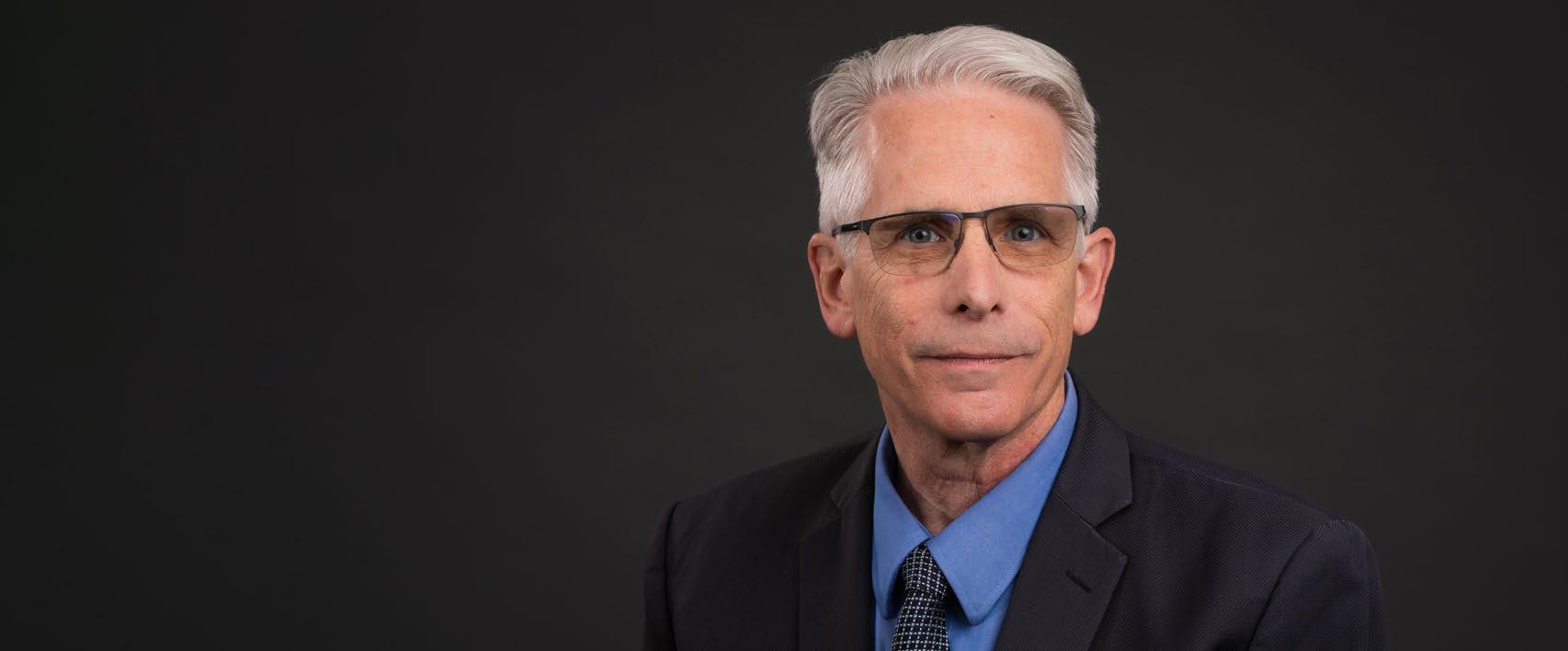
“The Ten Commandments and Jesus’ command to love your neighbor are really the foundation of compassionate, Christian care and medicine,” he says. “If your neighbor comes to you when they’re in pain, does that mean that you kill them? I don’t think that’s compassionate. As a professional, it’s certainly not good practice.”
In 2016, the End of Life Option Act took effect in California, legalizing physician-assisted suicide for terminally ill patients with less than six months to live. Participation in assisted suicide was voluntary at first. But two years ago, the state amended the law to force conscientious physicians to participate in the deadly act. It also eliminated an important safeguard for patients.
Initially the law required patients to make two requests, at least 15 days apart, before they could receive medication to end their lives. The amended law reduces the time period to two days.
“I see patients change their minds 180 degrees within a number of days regularly,” Cochrane says. “It takes longer to get a driver’s license in California than it does to get medicine to kill yourself.”
Cochrane refutes the law’s implication that there are only two choices in end-of-life care: forcing physicians to help patients commit suicide or sentencing patients to intractable suffering.
“It’s just a false, strawman argument to suggest that physician-assisted suicide is necessary to effectively manage pain and symptoms near the end of life,” says Cochrane. “In some 20 years, I’ve never once been in a situation where I felt like that was the only option I had.”
Cochrane considers the End-ofLife Option Act a risk to society, providing a stepping stone to legalized euthanasia — in which doctors actively administer lifeending drugs instead of providing patients with the means to do so.
“Once you say it’s OK for physicians to recommend suicide, why should we limit it to the last six months of life?” he asks. “We can just say at any point in time that someone can decide they don’t want to live.
“I never want to lose connection to the fact that these are not just patients,” Cochrane says. “They are people.”
It takes longer to get a driver’s license in California than it does to get medicine to kill yourself.
Dr. Leslee Cochrane
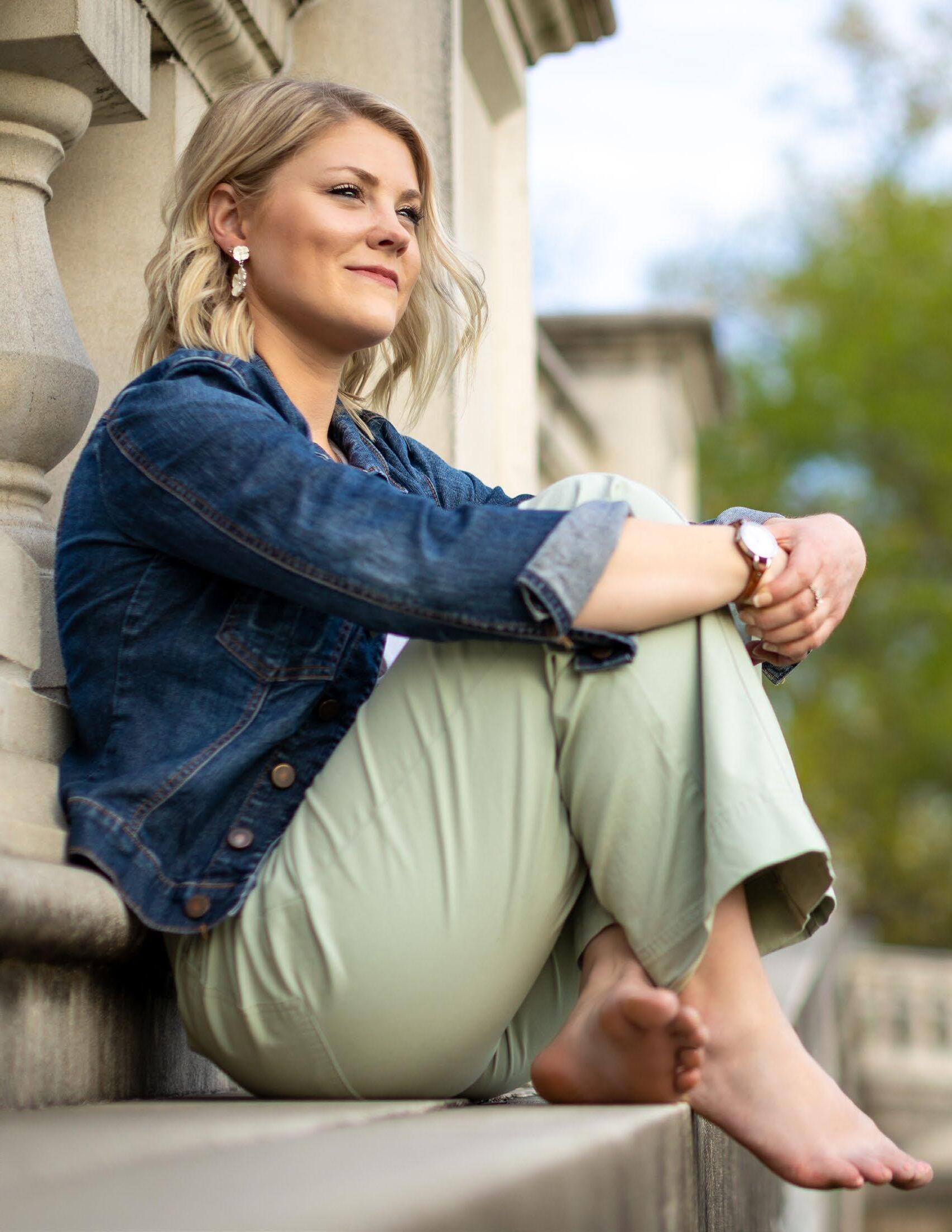
I’d be sitting there, praying, ‘God, I don’t want to speak today. But if You tell me to speak, I’ll speak.’
‘‘
Maggie DeJong
Different dads find different ways of spending meaningful, memorable time with their little girls. Some take in father / daughter date nights or dances. Some cheer for the same teams or find movies they can watch together. And then, there are the DeJongs. They pour concrete with each other.
It’s done much more, daughter Maggie says, than cement their relationship.
“My dad is a sixth-grade teacher, and in the summers, he was also a concrete contractor. I grew up doing concrete with him.” Her job, she says, was to shovel wet cement into a wheelbarrow, push it to wherever the cement needed dumping, then run back for another load.
“No laziness, just hard work, running the wheelbarrows,” says her dad, Todd. “It’s not easy. But Maggie had a good attitude, never a complaint. She just knew how to push hard. The drivers of the concrete trucks were always impressed. They’d say, ‘She’s better than all the guys out here.’”
A good work ethic aside, Todd had other reasons for enlisting his youngest daughter as a “wheeler.” Maggie had decided she’d like to run for her high school cross-country and track teams.
“‘If you can push that wheelbarrow 20 times up a hill and back,’” Maggie remembers him saying, “‘then you can run up a hill in crosscountry without a wheelbarrow.’” It worked.
“When I would hit hills in my races, I was like, ‘All right. There’s no cement. I have no wheelbarrow. I can do this.’ And that’s where I would pass people. I loved the hilly courses because of that. My dad trained me for them.”
The training paid off. Maggie ran track in state competition four years in a row; in her junior year, her 32-meter relay team broke the school record. But more than the competition, it was the running itself that she loved. In her running shoes, she tucked a line spoken by the Eric Liddell character in Chariots Of Fire: “[God] made me fast, and when I run, I can feel His pleasure.”
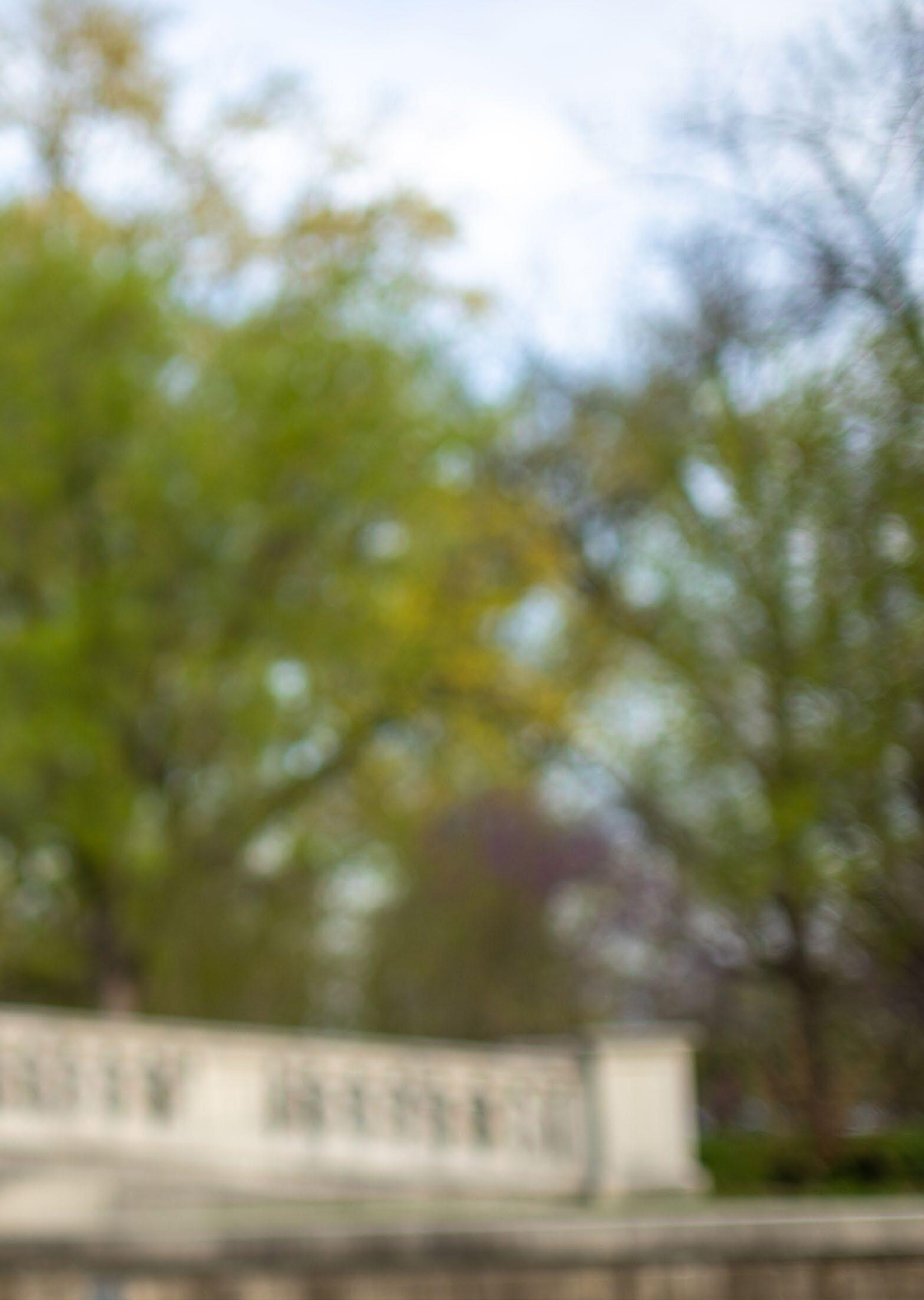
Now, years later, Maggie is still building on those high school experiences. Still running, and feeling God’s pleasure. Still able to push hard when she has to.
And a good thing, too. Because the loads she is carrying have only gotten heavier. And the path has been uphill all the way.

The idea of becoming an art therapist caught Maggie by surprise.
“I was like, ‘This is a thing?’” she says. “I didn’t know a lot about it. But I just jumped in, and I didn’t look back.”
Mothers, though, look back, and Maggie’s mom, Barbie, saw her daughter’s career choice as a natural culmination of things she’d been observing for a long, long time. An art teacher herself, she remembers teaching a very young Maggie how to shade the colors on the pictures she was drawing.
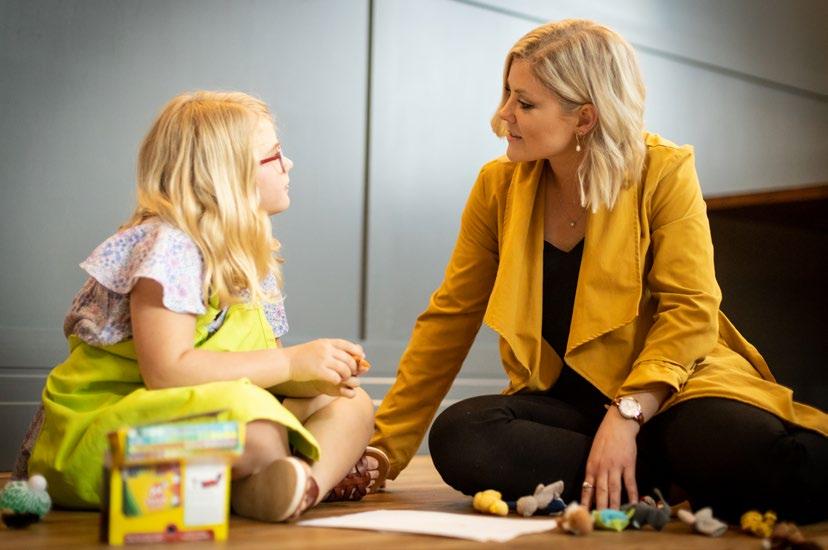
God will not hold us guiltless. Not to speak is to speak. Not to act is to act.”
So, faced with evil, she spoke. She acted. And paid a steep price for doing so.
The art therapy counseling program at Southern Illinois University Edwardsville is regarded as one of the best in the country — a graduate program so elite that only 10-12 new students are admitted each year. The more Maggie learned about it, the more she knew that’s where she wanted to go. She was so sure that’s where she belonged that, when turned down the first year she applied, she rejected offers from other universities, choosing instead to take a “gap year” and reapply at SIUE the next fall.
During that year, she worked at a clinic for children with autism — a job that proved educational in its own way. Maggie saw some treatments there she thought might be doing more harm than good.
Left: Maggie with her parents, Barbie and Todd. Below: Even before joining the art therapy program, Maggie found opportunities to use her skills helping autistic children.
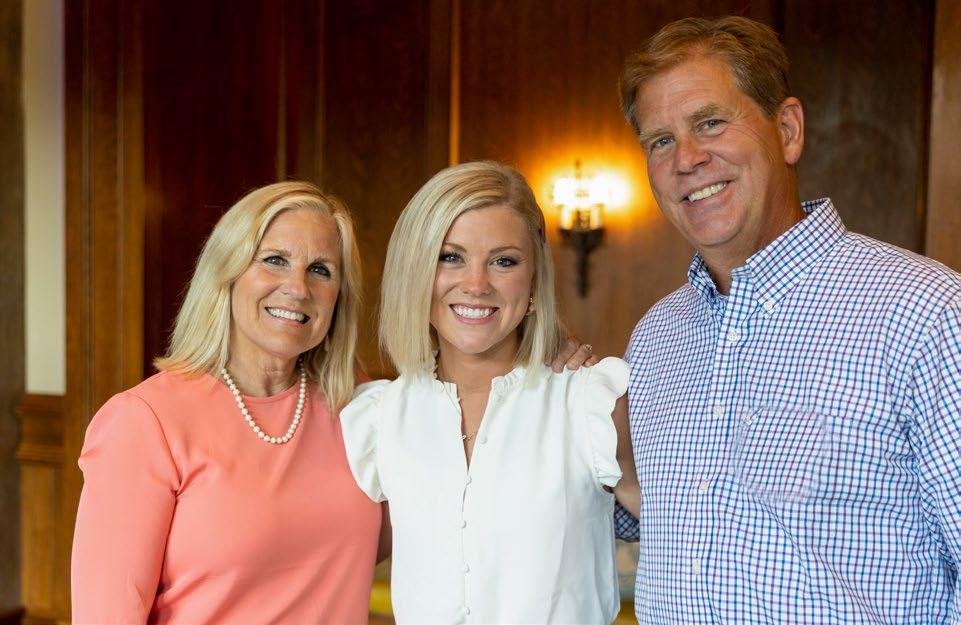
“She just took to it,” Barbie says. “It was amazing. She’s an incredible artist. Even if she were not an art therapist, she would be a fabulous illustrator. But she also knows how to teach others and draw them in, patiently.” That patience with people showed up early, too.
“In elementary school, probably first grade, there was a little boy in her class who would never talk. And she sat by him and just graciously, day after day, she would get this little boy to speak. It was the most wonderful thing
“Maggie sees things that very few people see,” Barbie says. “Very intuitive. I used to tell her, ‘If God allows you to see something, ask Him what He would want you to do about it.’ And when she would see something, she would act on it. She would pray and ask God. She didn’t just see it — she would do what she could to help out.”
That inclination deepened into conviction when Maggie read a biography of Dietrich Bonhoeffer, the German pastor who challenged the Nazis and paid for it with his life. She was struck hard, she says, by his warning that “Silence in the face of evil is itself evil:
“I learned a lot on how to disagree with what was going on,” she says, “and how to advocate for those kids.” She also began to understand the self-discipline and sacrifice her chosen vocation might require.
“I’m high empathy,” Maggie says, “but there is that line between feeling what the other person is feeling and also knowing right from wrong and tethering that line.
“My biggest thing is to meet people where they need to be met, instead of coming in with a mindset. I need to understand them first.” Sometimes, she says, that
understanding brings tears — of outrage, frustration, compassion. Some of the tears are for others, and some, truthfully, are for herself.
“Years ago, though, I was driving, and this prayer came into my mind: ‘Lord, let every tear I shed be one less tear for them.’ The pain that I experience … there’s going to be purpose in it.”
On her second application, Maggie was accepted into the SIUE art therapy counseling program. After two interviews in as many years, the faculty must have had some idea who they were getting. And to some degree, Maggie knew, as well.

“I didn’t go in naïve,” she says, “but I didn’t know how bad it was going to be. I didn’t realize how much indoctrination they had going on.”
Ten other women were in Maggie’s class, or “cohort,” and from the beginning, “I really worked on building those relationships, because I loved them and they felt like family,” she says. “We were very close.”
Maggie knew the other students understood that she looked at some things differently than they did. She also realized that, for at least some of the women, she was their first real exposure to a serious Christian with a biblical worldview.
“So, my biggest thing was not, ‘How do they see me?’ but ‘How do they see Christians? How am I representing God?’”
The SIUE program covers three years; for most of the first, Maggie’s strategy of kindness seemed to work. But even as she cultivated friendships with her classmates, her concerns grew over what they all were being taught in classes supposedly designed to make them effective therapists.
“I realized, even going into it, that this is a very leftleaning program — very post-modern,” she says. Sitting in classes, “I realized that this was not aligning with what I wanted to be, as a therapist. I wondered, ‘Why aren’t we learning therapy?’”
Though some aspects of the profession were covered, much of the program, Maggie realized, was “an indoctrination camp — pushing feminist theory and social justice. I thought, ‘We’re learning to be therapists who adhere to their specific ideologies.’”
She did a great deal of research about the ideas she was hearing — critical race theory and Black Lives Matter violence, Marxism and censorship, political events and
COVID-19 restrictions — and with what she learned, her confidence grew. As the program moved into its second year, she began to ask more questions — to push back on some of the ideologies she was hearing from her classmates and professors every day. But it wasn’t easy.
“I’d be sitting there, praying, ‘God, I don’t want to speak today. But if You tell me to speak, I’ll speak.’ And I’d get this feeling in my gut: ‘This isn’t right.’” Her hand would go up. “I questioned how we view people and put them in these factions and tag them with these labels.” She challenged the presumptions presented by her professors … posted some of her opinions on her social media platforms … engaged in classroom discussions and text messages. She was treading in a minefield — and the explosions soon began. Accusations of racism and white privilege and religious intolerance. Soon, several of her classmates were complaining that she was saying things “harmful” to their beliefs, views, and sense of identity.
Maggie took care to listen to other viewpoints. “Don’t you think it’s not okay to say a person’s belief system is wrong?” texted a fellow student, after one of their discussions.
“You ask a very good question,” Maggie replied. “You can totally disagree with me, and that is your right.”
So, my biggest thing was not, ‘How do they see me ?’ but ‘How do they see Christians ? How am I representing God?’ ‘‘ Maggie DeJong
When challenged on statements she’d made or posted, she offered to engage in friendly conversations. “I want to reiterate to you today how much I value you,” she wrote another student, after a four-day ongoing debate (via text). “Even though we don’t agree, I see a beautiful heart and compassion for children in you.”
Maggie tried to explain how her views were drawn from her Christian faith, a faith that taught her to love and respect even those who disagreed with her. In response, she learned that a fellow student had created an art project for display on campus that featured a quote Maggie had shared in a private social media message: “My personal held beliefs are grounded in objective truth by the gospel of Jesus Christ.”
The project was entitled, “The Crushing Weight of Microaggressions.”
“If you’re a Christian,” Maggie says, “not a ‘cultural Christian,’ but a Christian who goes by scriptural truth, you will be criticized. You will be taken down for that.” In her classes, professors increasingly fostered a painful environment in which Maggie’s fellow students tore into her beliefs and twisted her ideas to mean things she wasn’t saying. Her parents saw the effects.
“She was an emotional wreck a number of times,” Barbie says. “Thank God she had a strong faith. But physically and emotionally, it was taking its toll on her. It was hard to watch.”
“As a parent, you’re concerned,” Todd says. “But
we had always tried to impress on ourselves and on our children that you’ve got to trust God. You just have to learn to do that … to cast the burdens there.”
And the biggest burden was yet to come.
One afternoon early in the spring of her final semester, Maggie received three emails in quick succession from SIUE administrators, informing her that she was legally required to have no further contact of any kind with three of her fellow art therapy graduate students.

The directives identified no law, policy, or rule that Maggie had violated. They didn’t say what the “no contact” orders were based on, or why the orders were allegedly necessary. She was given no chance to defend herself. She was simply told that any interaction with the students named “could be perceived … as unwelcome, retaliatory, intimidating, or harassing,” and that if she violated these directives, she would face “disciplinary consequences.” Campus police were copied on the orders.
The director of Maggie’s program then sent an email to more than 30 students, confirming, without naming her, that Maggie was under investigation and implying that she had engaged in “misconduct” and “oppressive acts.” The disclosure violated a university policy requiring officials to “take all reasonable steps to ensure confidentiality” during an investigation of a student. It was but one of a number of ways the university’s actions violated its own policies, as well as Maggie’s constitutionally protected right of free speech.
If you’re a Christian — not a ‘cultural Christian,’ but a Christian who goes by scriptural truth — you will be criticized.
Maggie DeJong
and alumni added their names to a letter to the editor of the SIUE student newspaper, accusing Maggie of “racist, homophobic, and xenophobic rhetoric” — without offering specific examples of any of those things. The letter suggested that Maggie was unfit to work as an art therapist.
It took 18 days to get the “no contact” orders rescinded. During that time, she found her ability to participate in her classes sorely limited by the fact that two of the students named in the “no contact” orders were part of those classes. Both also worked in the same building she did. Maggie couldn’t join in group chats or Zoom classes where those students were participating, and was even hesitant just to walk across campus — afraid she might bump into the students and be penalized for violating the orders.
In effect, her speech and even her physical movements were being censored — all because fellow students and professors disliked her point of view.
Increasingly isolated from everyone else in the program, she began to lose sleep, appetite, and weight. She felt chest pains and found it harder and harder to


concentrate. And she began to realize that the same professors who were abetting the attacks on her words and ideas would soon be the ones determining her ability to find employment as an art therapist after graduation. If they allowed her to graduate at all.
It was a level of persecution that even Alliance Defending Freedom’s most experienced campus attorneys have scarcely observed.
Iwas really surprised,” says Tyson Langhofer, ADF senior counsel and director of the ministry’s Center for Academic Freedom. “The extent to which a university would be willing to violate the rights of a student, based solely upon what is inarguably protected speech, and without any real due process.
“That a public university administrator,” he says, “would essentially issue restraining orders against a student who had been there three years, never had any other complaints against her, had never done anything wrong … and none of the other students involved had ever asked her to stop communicating with them.
“What’s more, the majority of the complaints were from social media, or in response to questions that those same students had asked Maggie.” If universities can issue such no-contact orders based solely on one student’s objections to another’s personal beliefs, he says, it will completely destroy universities as “a marketplace of ideas.”
Inevitably, Langhofer says, students will start censoring themselves, because “what’s happened to Maggie can happen to literally anybody. You don’t need to go looking for trouble on a college campus for it to find you.” People assume, he says, that if a school issues a no-contact order, the student must have done something to provoke such a response. “And today, that’s just not true.”
ADF attorneys sent a demand letter to SIUE shortly after the no-contact orders were issued against Maggie. Eventually, the orders were rescinded, but the harm they caused Maggie could not be, the atmosphere that produced them clearly hadn’t changed, and the threatened impact on Maggie’s future employment remained. ADF then filed suit in the U.S. District Court for
Southern District of Illinois, seeking damages and a ruling that the university had flagrantly violated Maggie’s constitutional rights.
SIUE asked that the lawsuit be dismissed; a judge’s ruling is pending.
“The good news,” Langhofer says, “is that we are succeeding in challenging these types of policies. Courts are recognizing that this is a significant threat to speech on campus. The broader concern is whether society itself is going to support those decisions.”
Upon entering the SIUE program, students are presented with a white scarf. Twice a year, the students of each cohort gather for a decoration ceremony, reminiscing and encouraging each other while embroidering their scarfs or dipping them in colorful dyes to illustrate their progress.

“It’s a very ‘art therapy’ thing to do,” Maggie concedes, but “when we first started, and were all so close, I loved it. We’d shed tears together and talk about our journey. I loved my scarf … at first.”
But the events of her later semesters changed all that. “The scarf started to represent pain to me,” she says. She placed it in the back of her closet, thinking, “Everybody else has this beautiful image of this scarf. And all I see is hurt and exhaustion.” Eventually, she just stopped going to the ceremonies. “I didn’t feel welcome.”
One evening, at the close of an ADF event where Maggie shared her testimony, she was presented with a gift box. Inside was “this beautiful, vibrant silk scarf. It was so glorious looking, and on it was written, “For Faith” and “For Justice.” Touched, she showed the scarf to her mother.
“Maggie,” Barbie said, “that’s in place of the scarf you were given by the university.”
Tears filled Maggie’s eyes, she remembers, as she thought, “That’s right. What Satan intended for evil, God made into something good. He brought redemption to something so sorrow-filled to me.” She wound up wearing the ADF scarf while presenting her oral defense of her graduate thesis. “I remember grabbing the ends of the scarf and reminding myself that ‘He prepares a table before me in the presence of my enemies.’”
Courts are recognizing that [there] is a significant threat to speech on campus.
The broader concern is whether society itself is going to support those [court] decisions.
Tyson Langhofer, Director, ADF Center for Academic FreedomThe scarf Maggie received at an ADF event proved a particularly timely blessing in her life.
Maggie’s lawsuit drew media attention all over the country. It also caught the eye of some Christians who run a safe house for adolescent girls rescued from sex trafficking. After her graduation, they called Maggie, invited her for a Zoom interview, and hired her to work in art therapy with the troubled girls they served.
“I love my job,” Maggie says. The girls she works with have suffered complex trauma. “In trauma, a part of your brain shuts down. It just can’t come up with words or anything like that. Art provides a mode of communication, and it bridges that gap, where you can actually express what’s going on, and what you’re experiencing.”
Art, she says, “has been a way to lend my girls voices. It’s crazy how much comes out through their work. They start to open up, and a lot of it, then, is relationship-building.” For some, Maggie says, it’s like experiencing the innocence of childhood for a second time. And in some cases, for the first.
“It’s a ferociously gentle approach. The best way to describe it is like the Michelangelo painting in the Sistine Chapel, with God touching the finger of Adam. I get to watch these girls just be so impacted by the Holy Spirit … and to be an advocate for those who have been wronged in the most heinous crimes that a child can be wronged in. I get a front-row seat to what God’s doing.”
The trials in her life have just deepened her faith,” Barbie says. “They’ve increased her knowledge and her yearning for the truth. We never wished for it, but when we look back … it’s a beautiful thing.”
“It has changed me,” Maggie says. “It has made my resolve much more firm. When you love Him, everything pales by comparison.”
Her fondness for quotes brings her back to something she heard Alistair Begg, the Scottish preacher, say years ago: “We have to go through God’s school of brokenness. In order to be great, we have to be broken.” For Maggie, the years at SIUE doubled as God’s School of Brokenness, and now she brings what she’s learned to the wounded girls in her art therapy room.

“I took this job, which is a hard job,” she says. “It will break your heart. There are so many things that I know now that I can never unknow, unsee. And I would never have it any other way … because you also see the goodness of God.”
It’s enough to make even a strong young woman cry. But every sob, Maggie figures, is one less tear “her girls” may have to shed.
The trials in her life have just deepened her faith. They’ve increased her knowledge and her yearning for the truth. ‘‘ Barbie DeJong
Aguy like Adam subverts quite a few of the stereotypes we attach to homelessness.
He was young, athletic, and had more than his fair share of doe-eyed glances from young ladies. But hiding underneath was an all-too-familiar story.
Influenced by the wrong crowd, he discovered alcohol in high school, which gave way to much more dangerous substance abuse. Adam became so dependent on opiates that he concocted a frightening plan to help feed the addiction. He aimed a gun at his foot, intending to inflict a glancing flesh wound just bad enough to secure a prescription for painkillers.
Instead, he lost his entire lower leg.
At the height of his despair and on the verge of homelessness, he asked his family to take him in. His father drove him to Wyoming Rescue Mission instead.
Although he’d only planned to stay a few days, Adam became a fixture in our Discipleship Recovery Program, which serves men and women struggling with addiction. As he started reading the Bible and listening to the testimonies of others, he realized he wasn’t alone in his struggle. All of us were excited when he decided, on Easter Sunday, to turn his life over to Jesus.
Adam is now enrolled at the University of Wyoming at Casper, with plans to become a licensed chemical dependency counselor. But if you were to ask him what’s next, he would more likely tell you, “My purpose is to help others as Jesus Christ helped me.”
That is why Wyoming Rescue Mission exists.
By Brad Hopkins — Executive Director, Wyoming Rescue Mission Adam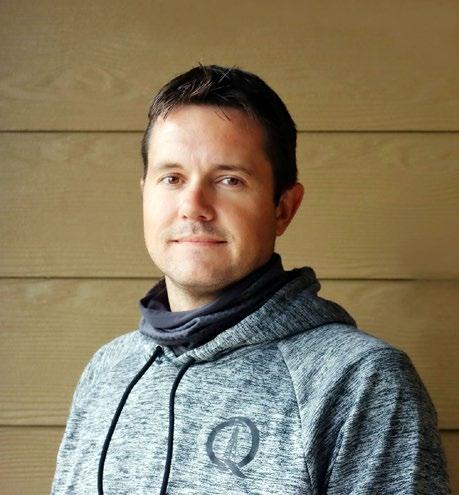
and our prayer is that Wyoming’s hurting and homeless people will be transformed through that faith-driven compassion.

To implement that pursuit, every team member must be aligned with the Mission’s goals. That is how we have always made decisions about who we should hire, and up until very recently I believed we were free to do so.
In September 2020, we advertised an open associate position at one of our Rescued Treasures thrift stores, which help fund the Mission’s operations. The store associate role involves much more than sorting donations and ringing up sales. It also includes the responsibility of
We serve the community in and around Casper by offering hospitality for anyone who comes through the doors. That includes caring for people’s immediate needs like nutritious meals, clothing, and a safe place to sleep. Compassionate care is step one. But without restorative transformation, true freedom will always be just out of reach.
To that end, the Mission also offers life skills classes, recovery programs, Bible study, and prayer, each designed to introduce people to the love of Jesus Christ. Our mission is unapologetically faith-based,

Sharing the love of Christ is a critical part of who we are. How can someone who does not believe in Christ share that love?
Brad Hopkins
teaching those enrolled in the Discipleship Recovery Program how to model Christ and share the Gospel.
Obviously, this role needed to be filled by someone who believes the truth of the Gospel. The job posting even detailed the need for applicants to have a strong Christian faith. One of our thrift store employees illustrates why this requirement is so crucial to our ministry:
Bernadette currently holds one of our store associate positions. She came to the Mission after escaping a terrifying domestic abuse and stalking ordeal, but she has since been transformed by her relationship with Jesus.
It was Bernadette who helped disciple Mistie, a teenager who found us after she had been sexually abused by her foster father, descended into substance abuse, and eventually landed in prison. It was Bernadette who spoke into Mistie’s life, prayed for her, and encouraged her. Her support and Christian example made a difference. A recent graduate of our
recovery program, Mistie is now working with at-risk youth.
So, when the Mission conducted an interview with one store associate applicant who was a self-proclaimed non-Christian, relationships like the one that had formed between Bernadette and Mistie ran through my mind.
We chose not to hire the applicant, since sharing the love of Christ is a critical part of who we are. How can someone who does not believe in Christ share that love?
That should have been the end of the story. As you might have guessed, it was not.
The applicant filed a complaint with the Wyoming Department of Workforce Services and the Equal Employment Opportunity Commission (EEOC). The complaint mentioned multiple anti-discrimination laws and policies, but none of them apply to the faith-based hiring decisions of religious organizations.
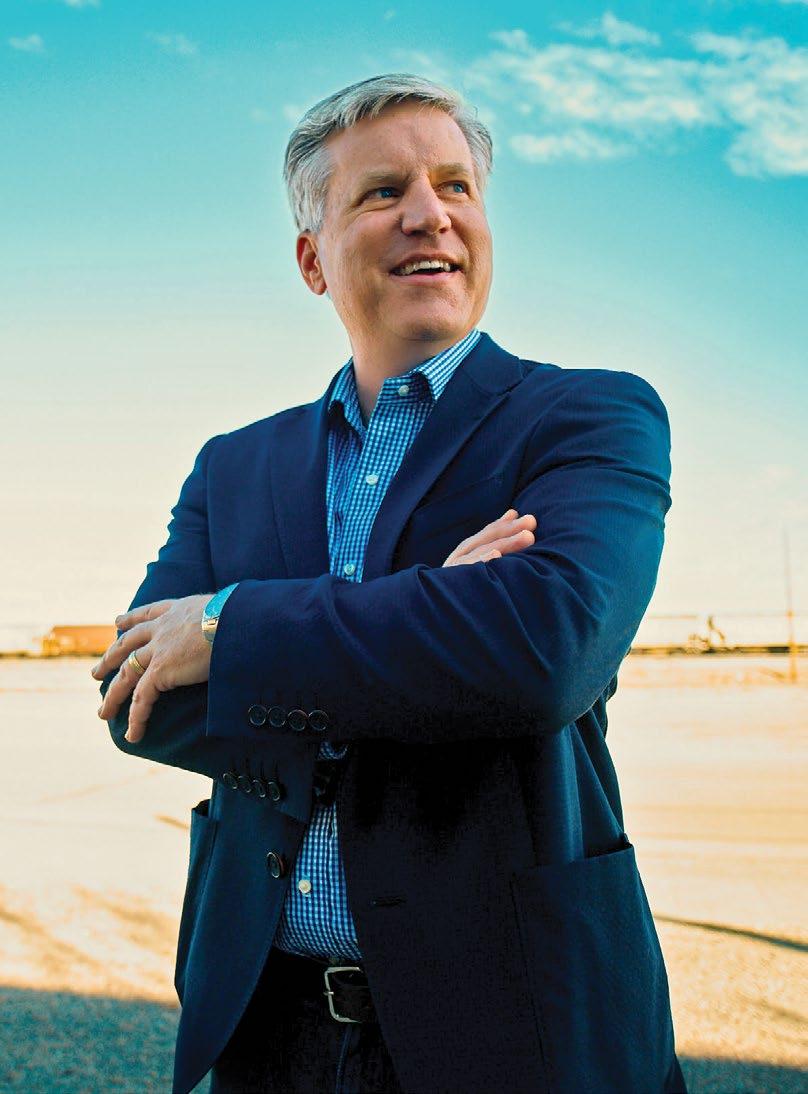
That did nothing to dissuade state and federal officials.
The two agencies found “probable cause” the Mission had violated state and federal law. They proposed an agreement that would force the Mission to provide back pay to the applicant and change our hiring practices to include those who do not share our beliefs. The message was clear: “Give up biblical hiring practices, or change the way you minister to community members.”
Of course, we could not comply. The EEOC issued a letter stating that it reserved the right to sue at any point.
It was an agonizing time for me personally. I was forced to take time and energy away from serving those in need—during a global pandemic—and fight for our rights as a religious organization. We contacted Alliance Defending Freedom for help, and we were so thankful we did.
After ADF filed a lawsuit on our behalf, the EEOC quickly reversed its decision. The state and the EEOC have now both acknowledged that they cannot force the Mission, or any religious organization, to hire those who do not agree with their religious beliefs.
I am truly grateful for a positive outcome for our Mission, but even more so for the Adams, the Bernadettes, and the Misties we serve. If the Mission is not free to serve with our faith at its center, we won’t continue to see stories like theirs. It is through that personal encounter with Christ at our facilities that these stories are created Thankfully, we prevailed. Because at the end of the day, lives are at stake if we do not.
The message was clear:
‘Give up biblical hiring practices, or change the way you minister to community members.’
Brad HopkinsBrad
Hopkins
Sherif Girgis is an associate professor of law at the University of Notre Dame. Before joining Notre Dame in 2021, he practiced law at Jones Day in Washington, D.C. Earlier in his career, he served as a law clerk to Justice
Samuel Alito Jr. of the U.S. Supreme Court and Judge Thomas B. Griffith of the U.S. Court of Appeals for the D.C. Circuit. Girgis earned a law degree from Yale University, where he served as an editor of the Yale Law Journal. He earned a master’s degree from the University of Oxford as a Rhodes Scholar and a doctorate in philosophy from Princeton
University. He publishes regularly in both popular media and academic journals, including The Wall Street Journal, The New York Times, The Federalist, the University of Pennsylvania Law Review, and the Virginia Law Review He is coauthor of What is Marriage? Man and Woman: A Defense
Girgis speaks regularly at the Alliance Defending Freedom Blackstone Legal Fellowship, a summer training program for Christian law students. He is also a Blackstone Fellow, having completed the program in 2012.
F&J: In what ways was the Blackstone Legal Fellowship valuable to you as a participant?
SG: The program was phenomenal and introduced me to many people that I’m still very close friends with. I am most grateful for the community I plugged into that summer. I especially appreciated the chance to think and talk about what it means to be a Christian lawyer, surrounded by people who were training to be or already were very conscious about integrating their work with their faith.
F&J: Now you teach Blackstone participants. How is that experience?
SG: Teaching at Blackstone is one of the teaching highlights of my whole year. There is something distinctive about teaching at Blackstone. I always find the students extremely engaged, extremely sharp, and very inspiring and edifying. They combine good character with a deep faith commitment and excitement about learning the law and using it well.
F&J: At Blackstone, you teach on the topic of natural law. What is natural law, and why is it important?
SG: Natural law is the set of moral principles about right and wrong — including some very important questions of justice, such as the sanctity of human life from conception — that you can know by reason alone. It gives us a vocabulary for defending legal and public policy conclusions in ways that non-Christians can understand and appreciate.
F&J: Recently, you’ve written and spoken quite a bit about abortion and the Dobbs Supreme Court decision that overturned Roe v. Wade. What was the significance of that ruling from your perspective?
SG: Dobbs is the most important Supreme Court case in all our lifetimes, no matter how long we live, both for its concrete impact — to pave the way for states to protect innocent human life — and for its correction to the greatest distortion of the law wrought by the Supreme Court since Plessy v. Ferguson [the 1896 decision that
I believe in the ability of arguments to win hearts and minds. Good arguments, made consistently and winsomely over time, can have an impact.
Sherif Girgis
legally sanctioned racial segregation under the “separate but equal” doctrine]. Its significance can’t be overstated. And it’s a testament to the intellectual and cultural power of the arguments made by the conservative legal movement for the past two generations.
F&J: How did the conservative legal movement create the moment of Dobbs?
SG: When Roe v. Wade was decided, in the immediate aftermath there wasn’t a ton of backlash. That grew over time. And even then, there was a serious question about whether resistance to it would be sustained. It took a huge political and legal movement even to keep the question alive, much less get to a point where elections were won, judicial selections were made, and votes were cast in the conference room to overturn Roe v. Wade — and in the case of the justices, even to the price of seriously risking their own lives.
Dobbs would be impossible without a movement that is making arguments, winning hearts and minds on the legal questions, and keeping front and center the moral stakes that make it so important to press that legal argument.
F&J: Talk about the work you do now.
SG: I teach and write on criminal law; constitutional law; and jurisprudence, the philosophy of law. The last few papers I have done have been about constitutional liberties in general, and about the reasons it might make sense to give religion special protection when we don’t have a civil liberty dedicated to protecting secular commitments and pursuits. I’ve also written a piece analyzing the Supreme Court’s reliance on history and tradition in constitutional interpretation.
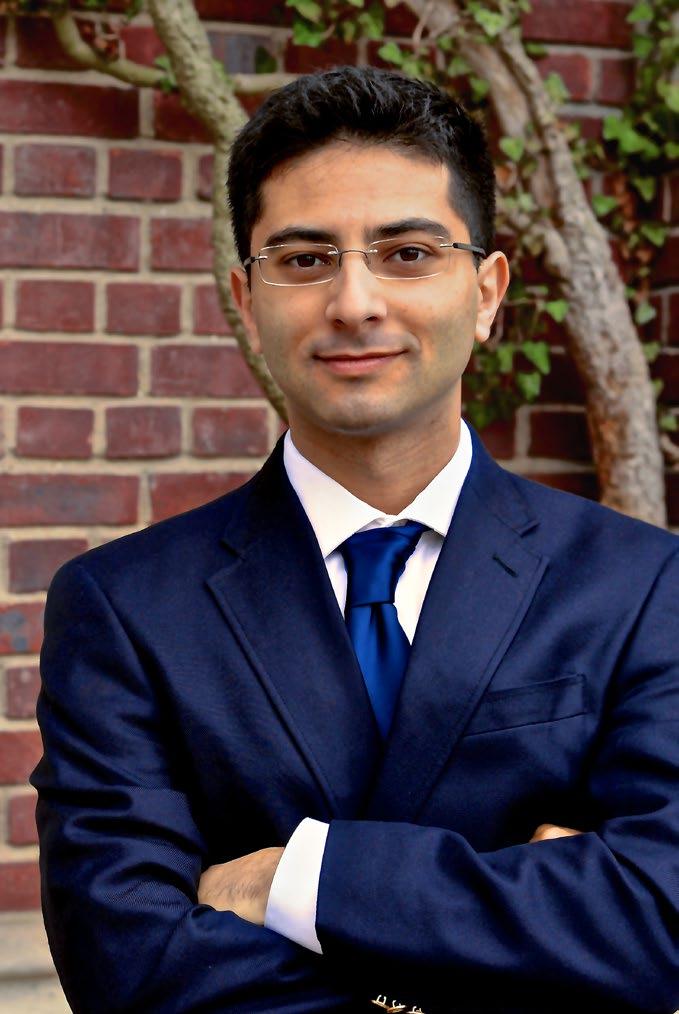
SG: When I was in graduate school and law school, I worked on an article defending the wisdom of traditional marriage laws. I was motivated by my disappointment with the way the arguments [in the marriage debate] were going, with the suggestion that one side had reason and enlightenment and good will and the other side had only darkness and evil or stupidity. I thought that what we called the “revisionist view of marriage” — or the view that marriage should be redefined to encompass any deep emotional commitment of two people — was subject to very serious rational objections.
I and my coauthors Robbie George, my mentor at Princeton; and Ryan Anderson, my very good friend who was a couple years ahead of me at Princeton, decided to put [all of the arguments] in one place. Because very few were writing on the issue from that angle, the article we wrote was published in the Harvard Journal of Law and Public Policy and got a lot of attention. In lecturing and doing debates on it, we got a much better sense of the objections that most often came to people’s minds. On that basis, we expanded the argument in book form. The book played some role in the debates about marriage, including legal debates. It was ultimately cited in dissent in the case about the federal Defense of Marriage Act. It really introduced me to the way arguments from the academy can affect legal disputes.
F&J: What gives you hope for the future of American law and politics?
SG: I believe in the ability of arguments to win hearts and minds. It’s a slow and messy process, and there’s nothing linear about it. But the law is one domain where it’s a little bit easier to see how good arguments, made consistently and winsomely over time, can have an impact. Dobbs is evidence of that. But in the end, there is no slippage in divine providence. So even defeats for good causes that are allowed are ones from which good will [eventually] be brought.
Stop and pray on the street in front of an abortion facility in England or Wales, and you soon could find yourself under arrest. Never mind if your thoughts were lifted to God imperceptibly.
Clause 11 of the new Public Order Bill, adopted by the Parliament of the United Kingdom in March, implements a 150-meter censorship zone or “buffer zone” around abortion facilities nationwide, banning “influence” of any sort, including prayer. An amendment to exempt silent prayer and consensual conversations failed, ushering in a new era of modern-day thought crimes in the U.K.
The Parliamentary debate played out like a dystopian film script.
Concerned Members of Parliament repeatedly raised the question: In a free society, should we really be arresting individuals on the basis of their thoughts? Hellbent on the introduction of buffer zones, the opposition argued that these zones are essential to protect women seeking an abortion from intimidation.
Regarding thought crimes, one Member of Parliament summed up the pro-censorship view: “There is a time and a place for everything” — including, in her estimation, the banning of silent prayer.
While the bill was under debate, two individuals were charged and one fined for silent prayer in two English cities where censorship zones were already in force. The story of the first arrest went viral, showing the world that the U.K. really is weaponizing the law to criminalize peaceful people for praying on public streets. ADF UK came to their defense.

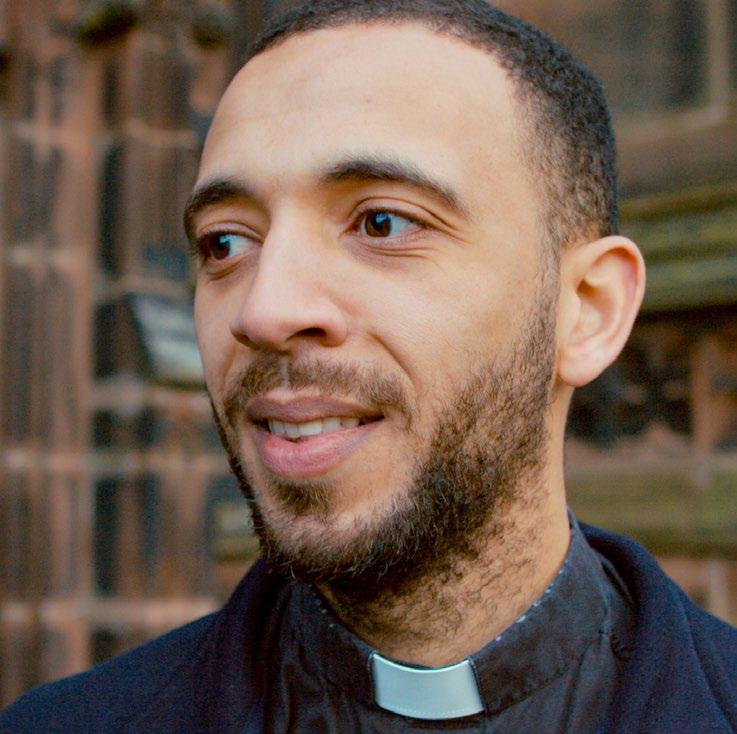
Pro-life volunteer Isabel Vaughan-Spruce was arrested in December for the “crime” of praying silently in a Birmingham, England, censorship zone. She was searched by three officers and learned that she could face up to two years in prison. Video footage of her arrest was shared on Twitter and has been viewed over 6 million times.
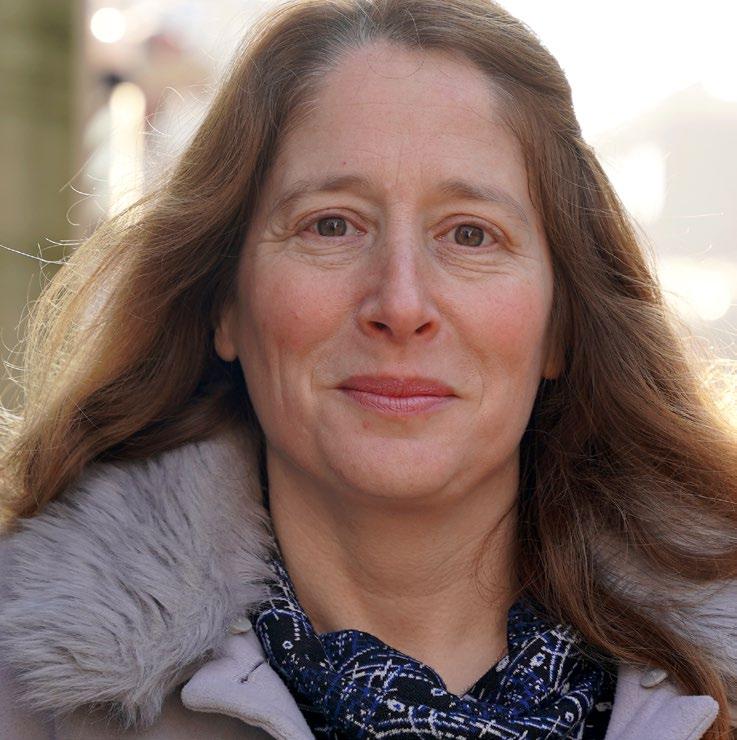 Isabel Vaughan-Spruce
Father Sean Gough
Adam Smith-Connor
Isabel Vaughan-Spruce
Father Sean Gough
Adam Smith-Connor
In February, Isabel was acquitted fully in court — only to be arrested again for the same act on the day before the Parliamentary vote. During the second arrest, the officer commented: “You’ve said you’re engaging in prayer, which is the offense.” Isabel clarified: “Silent prayer.” The officer’s answer spoke volumes: “You were still engaging in prayer, which is the offense.”
Next came Catholic priest Father Sean Gough, who was criminally charged for praying silently in the same Birmingham zone as Isabel. He was also charged for having an “Unborn Lives Matter” bumper sticker on his car, which was parked in the zone.
Most recently, Adam SmithConnor was fined for silent prayer in Bournemouth. The city has in place an absurdly specific ordinance, banning a host of activities including sprinkling holy water, kneeling, reading scripture, and praying in the vicinity of the local abortion facility.
Despite the egregious nature of thought-crime prosecution, what happened to Isabel, Father Sean, and Adam is now a nationwide reality in the U.K. Following the adoption of the new Public Order Bill, the potential for infringements on fundamental freedoms is immense and is only getting started.
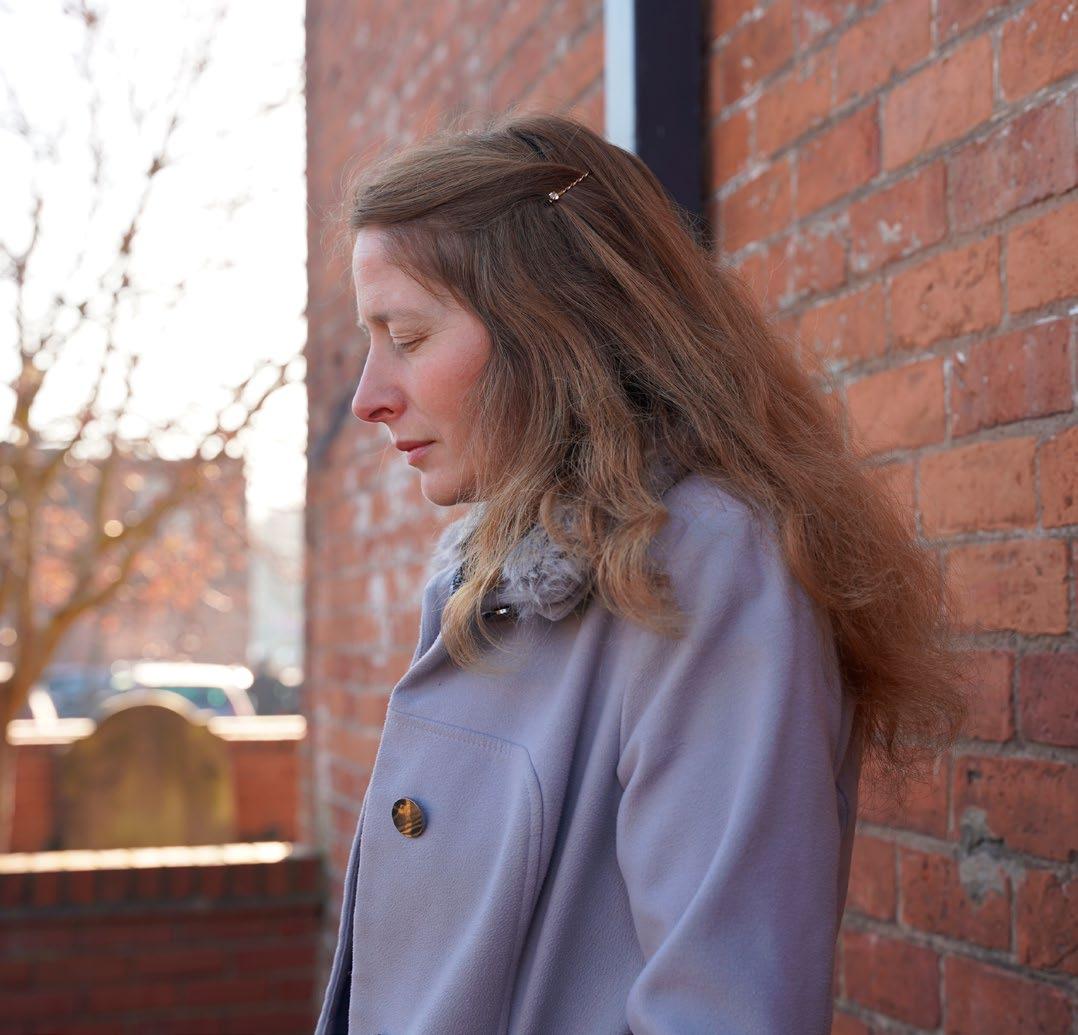
Strikingly, the proposed amendment to exempt silent prayer and consensual conversation from the law lost in Parliament with 116 votes in favor and 299 against — a dark day for democracy. Let that sink in: nearly 300 British Members of Parliament think prayer in certain public places should be an offense under the law.
Censorship zones generate widespread legal chaos, equipping the state to criminalize peaceful activities on the public street with disastrous consequences for a free society. And yet their proponents claim a clear purpose for their deployment — creating a “buffer” to protect women from harassment. This goal is but a farce.
Harassment is always wrong, which is why it is already a crime under U.K. law. These zones have nothing to do with preventing harassment. You don’t need football field-sized silencing zones to accomplish that. This is about stifling a certain point of view — in this case, the view that every unborn child has the right to life.
Every person should have the right to peacefully think, pray, and act in accordance with their convictions. Following the introduction of these draconian prohibitions, we can expect severe consequences for fundamental freedoms in the U.K. Today the state is leveraging its silencing power to support abortion; tomorrow it could extend similar measures to another issue entirely.
Americans should recognize this as a wake-up call to diligently defend their First Amendment freedoms. All concerned with the preservation of a free society must stand guard against the thought police.
Elyssa Koren is an international human rights attorney and legal communications director for ADF International This was adapted from an article that originally appeared in First Things on March 28.
This is about stifling a certain point of view — in this case, the view that every unborn child has the right to life.
Elyssa Koren
